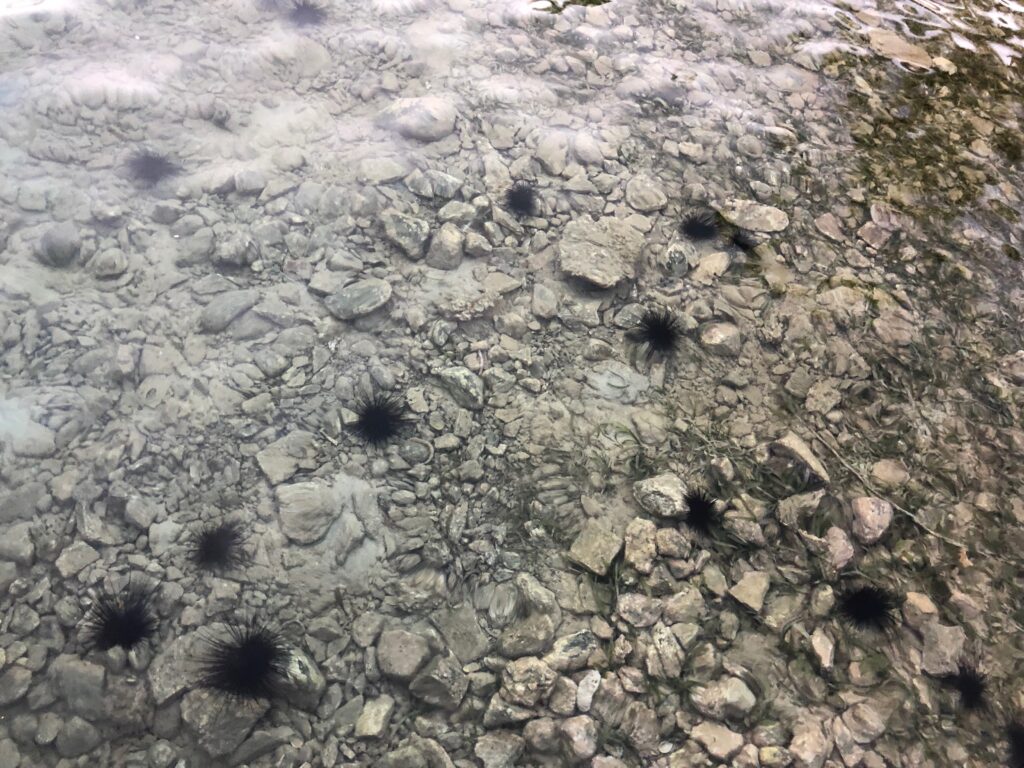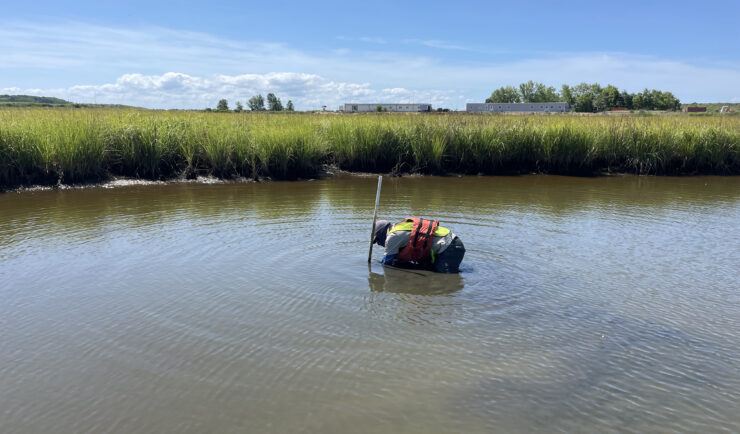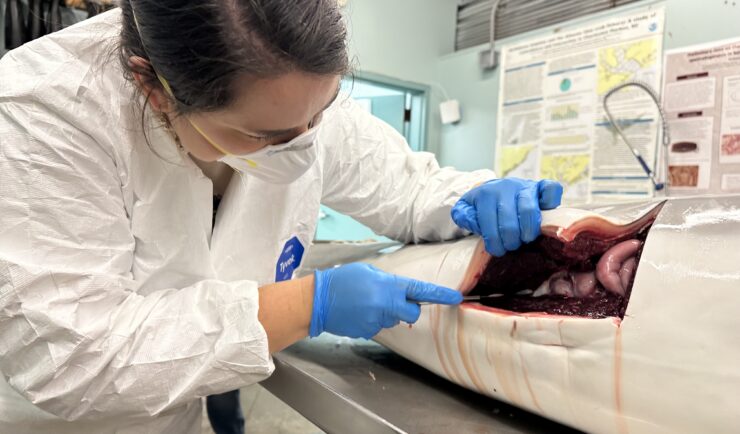

A diver collects a long-spined sea urchin. Credit: Blake Gardner
Our employee owners were recently part of a team of detectives on a mission to discover the killer of long-spined sea urchins, Diadema antillarumy, throughout the Caribbean Sea. The infected urchins lose their spines, leaving them more vulnerable to predation or dying after a few days. In 1983 the same species experienced mass mortality with identical symptoms, but scientists were unable to discover the culprit. Forty years later, the issue resurfaced, and a team of scientists joined forces to unlock the mystery.
CSS employee owners, supporting NOAA’s Coral Reef Conservation Program and NOAA’s Office for Coastal Management, joined a team of scientists in diving to collect urchin samples at 23 sites around the Caribbean Sea. By providing the samples, the researchers were then able to examine and test the urchins and compare them to healthy urchins to determine the cause of the mortality.
Due to this rapid response, scientists determined the cause of the issue within three months
Our staff coauthored this paper documenting the process. https://www.science.org/doi/10.1126/sciadv.adg3200

Researchers examine a long-spined sea urchin. Credit: Leslie Henderson
See More CSS Insights

Tracking Fish Through Restored Habitat
Poplar Island, a severely eroded remote island in the Chesapeake Bay, has been the site of a major restoration effort supported by CSS client, NOAA’s National Centers for Coastal Ocean Science (NCCOS), and their partners, Army Corps of Engineers, and the Maryland Department of Transportation, Maryland Port Administration. This massive effort utilizes dredge sediment from…

Going Above and Beyond During Difficult Circumstances
Congratulations to our Senior Program Analyst for receiving the Program Manager’s Spotlight Award, one of the highest levels of awards our company offers. She was nominated by her federal deputy director with the National Oceanic and Atmospheric Administration’s Coral Reef Conservation Program for quickly taking action upon the departure of the federal grants coordinator. She…

Assisting South Carolina Marine Mammal Stranding Network
CSS employee owner and Marine Mammal Microplastic Specialist supporting NOAA’s National Centers for Coastal Ocean Science assists the South Carolina Marine Mammal Stranding Network in responding to dead marine mammals when they strand on beaches or estuaries throughout South Carolina. This is work is critical for human and environmental health because it provides invaluable samples…
